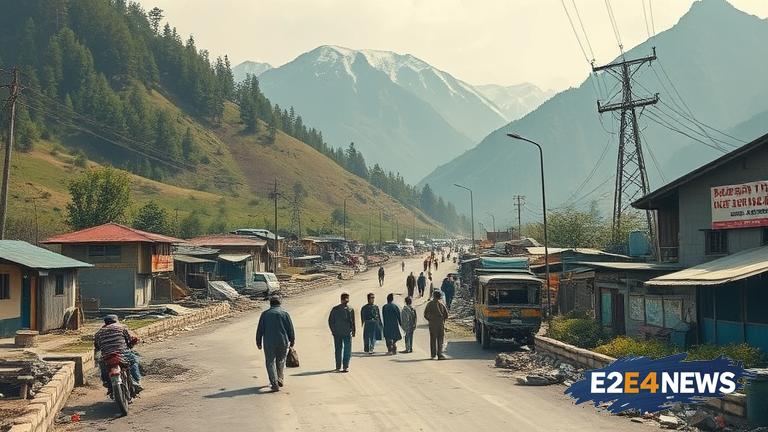The abrogation of Article 370, which granted special status to the state of Jammu and Kashmir, has completed one year. The move, which was announced on August 5, 2019, has had far-reaching consequences for the region. Former Jammu and Kashmir Chief Minister Omar Abdullah has expressed his concerns about the future of the state, stating that he has a ‘gut feeling’ that the situation will worsen. Another former Chief Minister, Mehbooba Mufti, has also spoken out against the abrogation, calling it a ‘betrayal’ of the people of Kashmir. The Indian government’s decision to abrogate Article 370 was met with widespread protests and criticism from various quarters. The government had argued that the move was necessary to integrate the state with the rest of India and to promote economic development. However, many have questioned the timing and manner of the decision, which was taken without consulting the people of Kashmir. The region has been under lockdown since the abrogation, with restrictions on movement and communication. The Indian government has also imposed strict curbs on the media, making it difficult for journalists to report on the situation. Despite the challenges, many Kashmiris have continued to protest against the abrogation, demanding the restoration of their special status. The international community has also expressed concern over the situation in Kashmir, with many countries calling for a peaceful resolution to the crisis. The United Nations has also issued a statement, urging India and Pakistan to resolve their differences through dialogue. The abrogation of Article 370 has also had significant implications for the relationship between India and Pakistan. The two countries have a long-standing dispute over Kashmir, and the abrogation has further strained their relations. Pakistan has condemned the move, calling it a ‘violation’ of international law. The Indian government has, however, maintained that the abrogation is an internal matter and that Pakistan has no right to interfere. As the situation in Kashmir continues to simmer, there are concerns about the potential for further violence and instability in the region. The Indian government has announced several development projects for the state, but many have questioned the effectiveness of these initiatives in addressing the underlying issues. The abrogation of Article 370 has also raised questions about the future of democracy in India, with many arguing that the move undermines the principles of federalism and autonomy. The situation in Kashmir is complex and multifaceted, and there are no easy solutions. However, it is clear that the abrogation of Article 370 has had a profound impact on the region and its people. As the world watches, it is imperative that the Indian government takes steps to address the concerns of the Kashmiri people and to promote a peaceful and sustainable resolution to the crisis. The international community must also play a role in promoting dialogue and understanding between India and Pakistan. Ultimately, the future of Kashmir will depend on the ability of all parties to work together to find a solution that respects the rights and aspirations of the Kashmiri people. The abrogation of Article 370 is a reminder that the struggle for freedom and self-determination is ongoing, and that the people of Kashmir will continue to fight for their rights. The Indian government must recognize the legitimate aspirations of the Kashmiri people and work towards a solution that addresses their concerns. The situation in Kashmir is a test of India’s commitment to democracy and human rights, and the world is watching. The abrogation of Article 370 has also had significant implications for the Indian economy, with many investors expressing concerns about the stability of the region. The Indian government has announced several initiatives to promote economic development in the state, but many have questioned the effectiveness of these measures. The situation in Kashmir is a complex and challenging one, and there are no easy solutions. However, it is clear that the abrogation of Article 370 has had a profound impact on the region and its people, and that a peaceful and sustainable resolution to the crisis is imperative.





